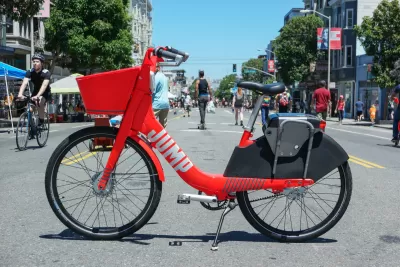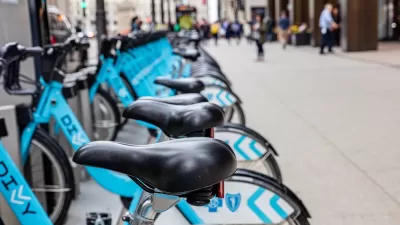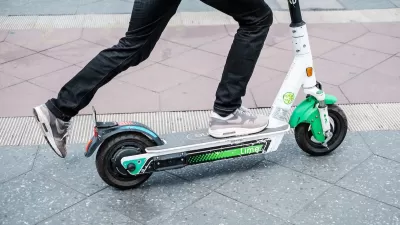Companies are looking to generate profits, but customers have come to expect low-cost, subsidized travel and raising prices will prove challenging.

Alana Semuels reports that shared mobility operators are facing a conundrum: how to start becoming profitable and meet the demands of stakeholders without losing the customers who have become used to cheap travel.
As these companies go public, the venture capital that allowed them to heavily subsidize travel options—by car, bike, and scooter—is disappearing. To turn a profit, they will have to raise prices, says Semuels:
[Sam] Korus, the analyst, thinks that shared scooter companies in particular are in trouble as subsidies come to an end. By his math, it costs scooter companies like Bird $2.55 per mile to rent dockless scooters to customers. Before they raised their prices, these companies were generating just $2.43 in revenue per mile, he says, meaning they will eventually have to raise prices to make money. But as they do, fewer people will use the service.
For some customers, purchasing their own devices is a more cost-effective option. Others will just stop using those services and revert to transportation modes they used before, such as walking or transit. Monthly passes or subscriptions are one strategy companies are considering to hold on to customers, and public subsidies are another possibility.
But the economic viability of shared mobility remains uncertain, says Semuels. "While we’re in an economic expansion at the moment, these companies appear particularly vulnerable to the threat of an economic slowdown. If another recession is coming, as observers like presidential candidate Elizabeth Warren have warned, consumers may be even less willing to pay for rides and other shared services once subsidies disappear."
FULL STORY: 'I'm Back to Riding My Own Bike.' Higher Prices Threaten Silicon Valley’s Mobility Revolution

Alabama: Trump Terminates Settlements for Black Communities Harmed By Raw Sewage
Trump deemed the landmark civil rights agreement “illegal DEI and environmental justice policy.”

Study: Maui’s Plan to Convert Vacation Rentals to Long-Term Housing Could Cause Nearly $1 Billion Economic Loss
The plan would reduce visitor accommodation by 25% resulting in 1,900 jobs lost.

Planetizen Federal Action Tracker
A weekly monitor of how Trump’s orders and actions are impacting planners and planning in America.

Wind Energy on the Rise Despite Federal Policy Reversal
The Trump administration is revoking federal support for renewable energy, but demand for new projects continues unabated.

Passengers Flock to Caltrain After Electrification
The new electric trains are running faster and more reliably, leading to strong ridership growth on the Bay Area rail system.

Texas Churches Rally Behind ‘Yes in God’s Back Yard’ Legislation
Religious leaders want the state to reduce zoning regulations to streamline leasing church-owned land to housing developers.
Urban Design for Planners 1: Software Tools
This six-course series explores essential urban design concepts using open source software and equips planners with the tools they need to participate fully in the urban design process.
Planning for Universal Design
Learn the tools for implementing Universal Design in planning regulations.
Caltrans
Smith Gee Studio
Institute for Housing and Urban Development Studies (IHS)
City of Grandview
Harvard GSD Executive Education
Toledo-Lucas County Plan Commissions
Salt Lake City
NYU Wagner Graduate School of Public Service





























